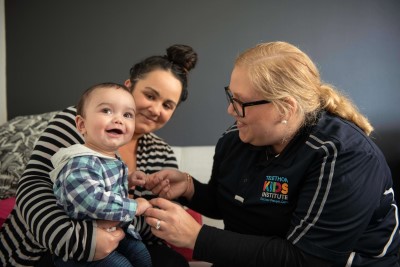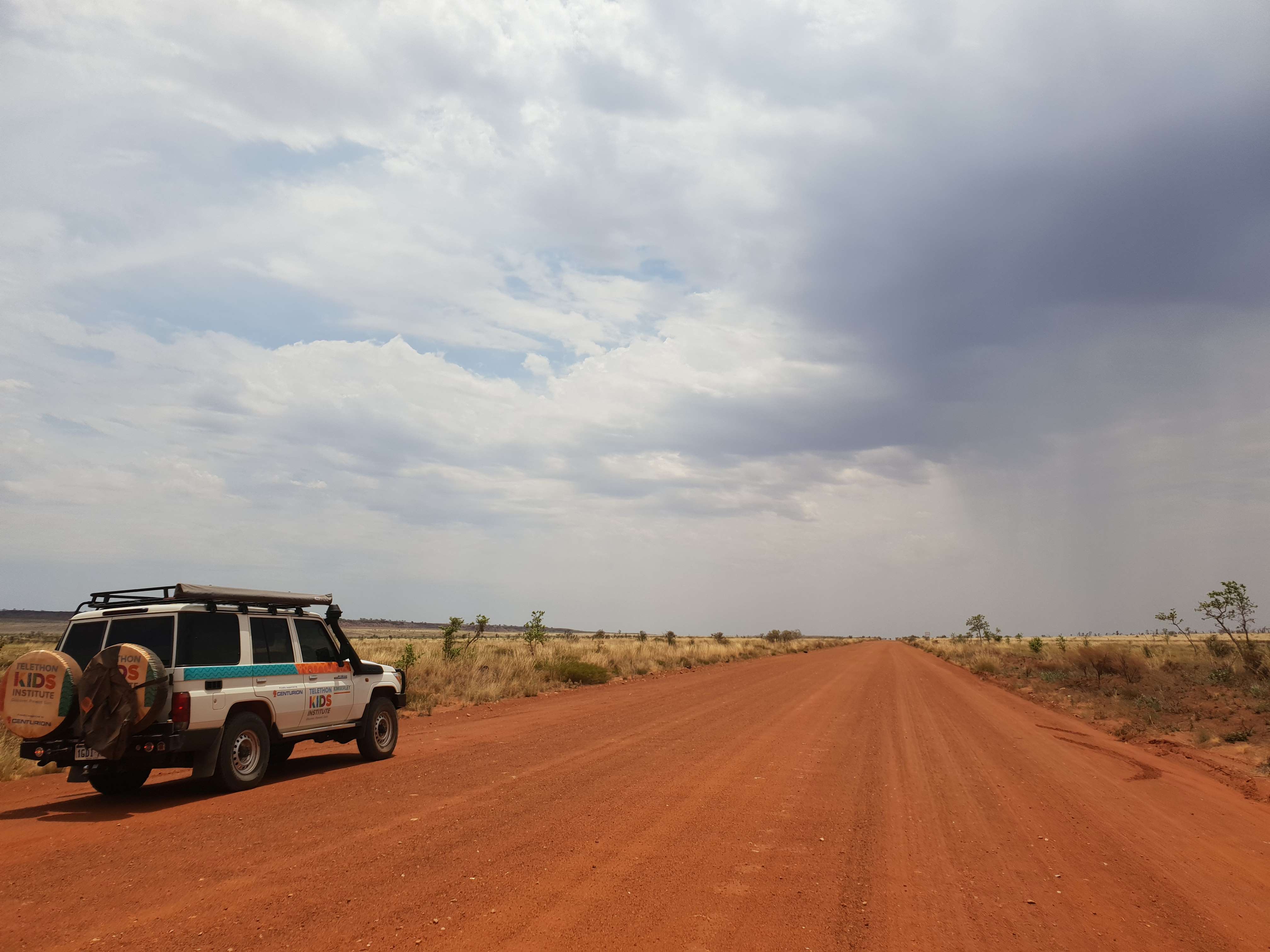Search
News & Events
Fresh Science to target painful ear infectionsThe Kids's Dr Ruth Thornton is one of 12 finalists in the annual national Fresh Science competition with her research into middle-ear infections.
Research
Unlocking the immunology of whooping cough vaccines to guide the development of improved vaccines and schedules in AustraliaRuth Peter Thornton Richmond PhD MBBS MRCP(UK) FRACP Co-head, Bacterial Respiratory Infectious Disease Group (BRIDG) Head, Vaccine Trials Group

News & Events
Perth’s Aboriginal babies show first signs of ear disease at just eight weeksThe Kids Research Institute Australia researchers have found close to 40 per cent of Aboriginal babies begin to develop middle ear infections between two and four months of age in a first of its kind study in metropolitan Perth.

News & Events
Landmark study halves skin infections in remote Aboriginal kidsLed by The Kids Research Institute Australia and Aboriginal health organisations in close partnership with nine Aboriginal communities in Western Australia’s Kimberley region, the five-year SToP Trial set out to identify the best possible methods to See, Treat and Prevent painful skin sores and scabies.
Research
Multipotent adult progenitor cells prevent functional impairment and improve development in inflammation driven detriment of preterm ovine lungsPerinatal inflammation increases the risk for bronchopulmonary dysplasia in preterm neonates, but the underlying pathophysiological mechanisms remain largely unknown. Given their anti-inflammatory and regenerative capacity, multipotent adult progenitor cells (MAPC) are a promising cell-based therapy to prevent and/or treat the negative pulmonary consequences of perinatal inflammation in the preterm neonate.
Research
Vitamin A and bronchopulmonary dysplasia: the next stepsPreterm infants are often vitamin A deficient, and vitamin A has functions that could mitigate the processes that lead to bronchopulmonary dysplasia. Therefore, supplementation of preterm infants with vitamin A to reduce the risk of bronchopulmonary dysplasia makes inherent sense.
Research
A phase I clinical trial assessing the safety, tolerability, and pharmacokinetics of inhaled ethanol in humans as a potential treatment for respiratory tract infectionsCurrent treatments for respiratory infections are severely limited. Ethanol's unique properties including antimicrobial, immunomodulatory, and surfactant-like activity make it a promising candidate treatment for respiratory infections if it can be delivered safely to the airway by inhalation. Here, we explore the safety, tolerability, and pharmacokinetics of inhaled ethanol in a phase I clinical trial.
Research
Securing the supply of benzathine penicillin: a global perspective on risks and mitigation strategies to prevent future shortagesBenzathine benzylpenicillin is a globally indispensable medicine.
Research
A health inequality analysis of childhood asthma prevalence in urban AustraliaLong-standing health inequalities in Australian society that were exposed by the severe acute respiratory syndrome coronavirus 2 (SARS-CoV-2) pandemic were described as "fault lines" in a recent call to action by a consortium of philanthropic organizations. With asthma a major contributor to childhood disease burden, studies of its spatial epidemiology can provide valuable insights into the emergence of health inequalities early in life.
Research
More People, More Active, More Often for Heart Health - Taking Action on Physical ActivityPhysical inactivity is a leading contributor to increased cardiovascular morbidity and mortality. Almost 500 million new cases of preventable noncommunicable diseases (NCDs) will occur globally between 2020 and 2030 due to physical inactivity, costing just over US$300 billion, or around US$ 27 billion annually (WHO 2022). Active adults can achieve a reduction of up to 35% in risk of death from cardiovascular disease.
